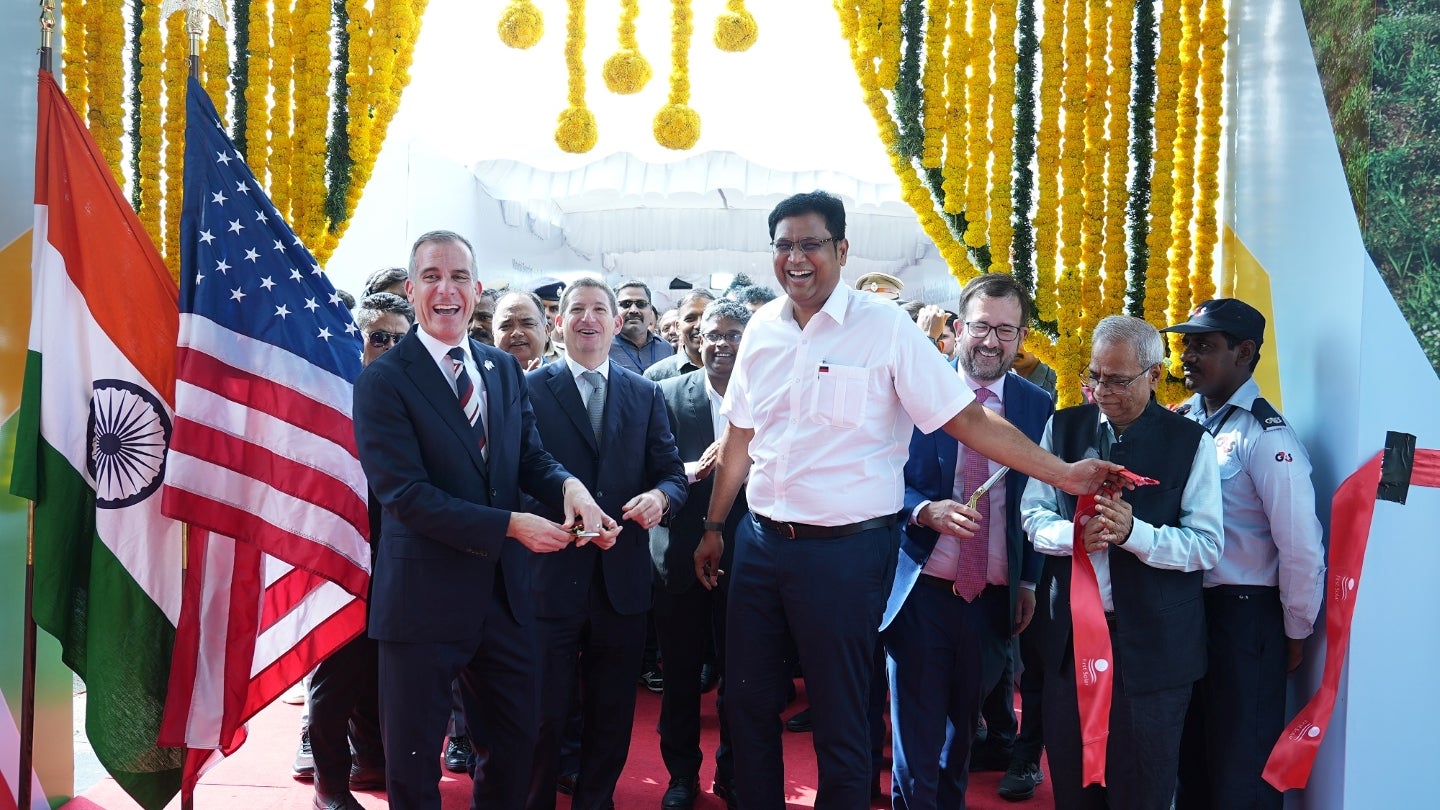
US-based solar module maker First Solar has inaugurated a new manufacturing facility in Tamil Nadu, India, with 3.3GW of annual capacity.
It is the country’s first fully vertically integrated solar manufacturing facility and has been built with an investment of $700m.
Its workforce of 1,000 will produce First Solar’s Series 7 PV solar modules, which have been developed in the company’s US research and development centres and are optimised for the Indian market.
Of the $700m investment, $500m was previously secured from the Development Finance Corporation.
This is the company’s first operational plant in India. With its existing presence in the US, Malaysia and Vietnam, First Solar’s global manufacturing footprint now extends to four countries.
First Solar utilises a tellurium-based semiconductor technology, which allows it to avoid reliance on Chinese crystalline silicon supply chains. This is the second most common photovoltaic technology in use today.
The Series 7 module is one of the most eco-efficient modules with a carbon and water footprint four-times lower than that of the crystalline silicon solar panels manufactured in China.
The facility houses India’s first solar PV recycling plant, which enables closed-loop semiconductor recovery for use in new modules.
The process also recovers aluminium, glass and laminates.
The facility has also been designed for environmental sustainability, particularly in its water usage.
It will operate using tertiary-treated reverse osmosis water from the city’s sewage treatment plant, ensuring zero wastewater discharge.
First Solar CEO Mark Widmar stated: “The inauguration of this landmark manufacturing facility and the launch of commercial shipments to customers in India is a crucial milestone in our journey to long-term and sustainable growth.
“The speed with which we were able to build and commission this facility is a testament to the policies of India’s federal and the Tamil Nadu state governments.”
First Solar has invested $4.1bn since 2020 to expand its manufacturing, growing from 6GW of capacity in 2020 to 16GW by the end of 2023.
It aims to increase its capacity to 25GW by 2026.




